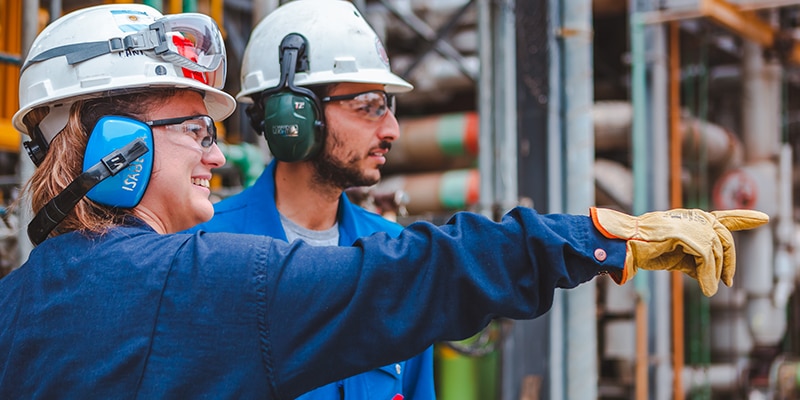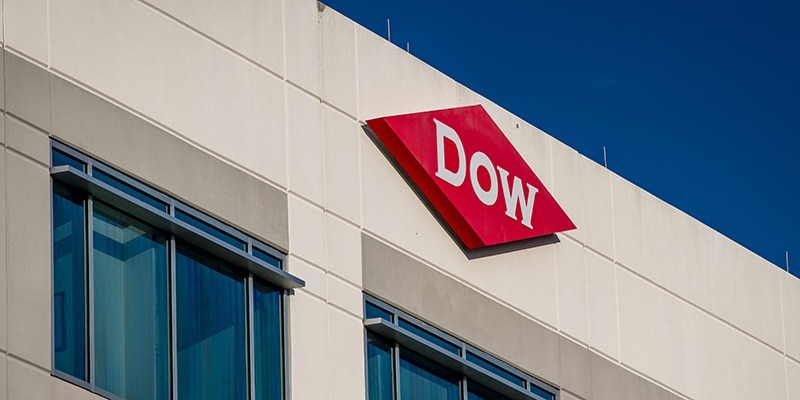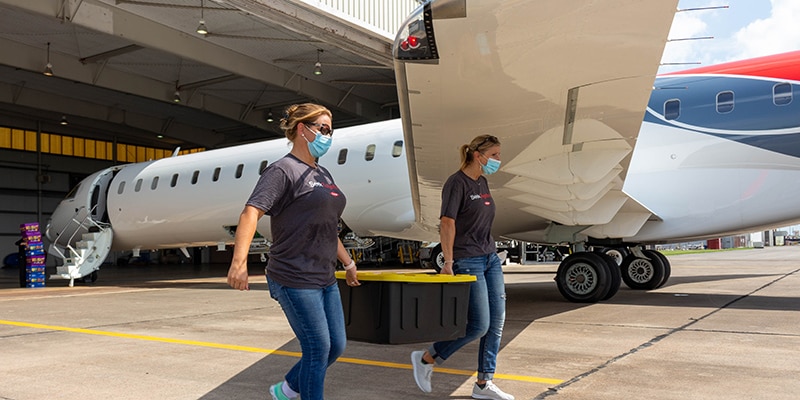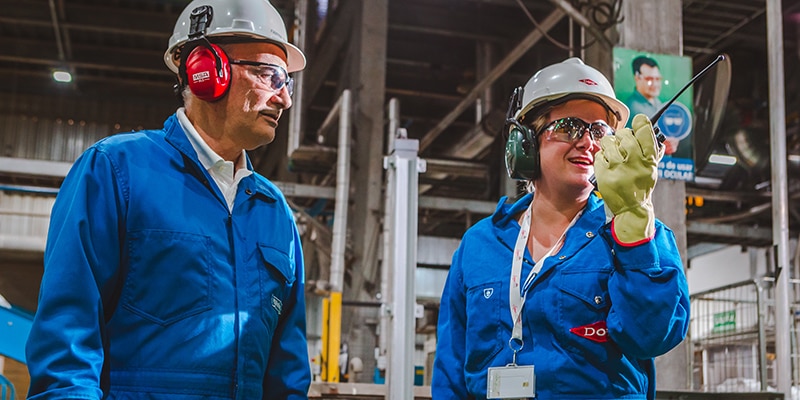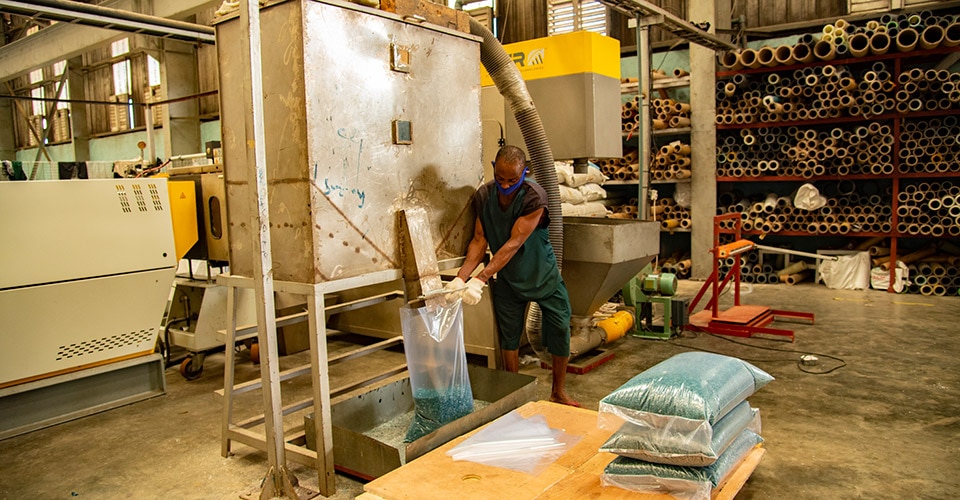
Bringing fresh water and recycling to West Africa
In Nigeria, Project ReflexNG aims to make littered plastic water sachets a sight of the past.
By the end of this century, our planet will host another four billion people. Three billion of them will be born in Africa. That’s another three billion people needing food, water and energy. But it’s also three billion people with aspiration and the ability to innovate and create.
One of the main challenges will be the waste footprint, as the middle classes expand across booming African cities. An increasing amount of waste will be paired with limited recycling infrastructure. While many programs have been created to target specific types of plastic, such as rigid plastics, there is still a huge litter-generating gap in the form of flexible plastic films. And nothing is more visible than the widely used water sachets in West Africa.
As of 2019, only 71% of the Nigerian population had access to safely managed and basic service drinking water. Though this percentage has been increasing, it is far too low. Water is a necessity, vital to life, which everyone should have access to. In the absence of potable water in Nigeria, sachet water pouches have provided an affordable and readily available source of drinking water to the masses.
The pouches are a fundamental part of life for millions of Nigerians every day. However, their widespread consumption has led to the unintended consequence of environmental pollution post-use, due to inadequate waste management infrastructure and waste disposal behaviors. As in many developing countries, there is an informal waste collection economy. In Nigeria, this favors rigid plastic and disregards low weight water sachets, because waste pickers are paid by weight. In general, the improper management of plastics is a growing issue but the infrastructure is not growing at the same pace – only half of plastic waste is currently collected and around 10% recycled.
Project ReflexNG directly targets remaining plastics that are left behind in current recycling practices.
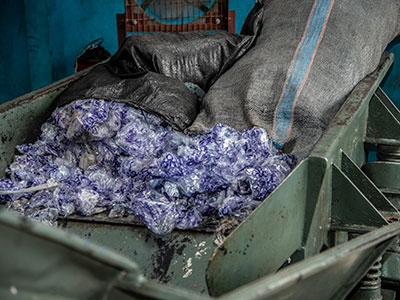 Right now, only 50 percent of the waste in Lagos, Nigeria is being collected via a formal system. This means the rest of the 13,000 tons of daily waste relies on informal systems and illegal dumpsites.
Right now, only 50 percent of the waste in Lagos, Nigeria is being collected via a formal system. This means the rest of the 13,000 tons of daily waste relies on informal systems and illegal dumpsites.
Incentive-based waste management company RecyclePoints, with Dow, have created a program where these flexible sachets can be collected in return for cash, groceries, phone credits and even tuition and school resources. When the plastic films are brought to designated recycling centers, the waste collector will see receive points which can be traded in for any of the rewards highlighted. With more than 70 percent of Nigerians living below the poverty line on wages $2 per day or less, waste collection is a viable way of providing much-needed jobs and income. There are millions of people in developing countries globally who make a livelihood through waste. Empowering and supporting the informal waste collection sector is vital for a healthy and sustainable world.
Additionally, changing the way things are done starts with education. Partnering with the Lagos Business School Sustainability Centre, 40 young waste collection entrepreneurs are being trained on sustainable waste management with emphasis on driving a circular economy. They will in-turn use this knowledge to improve their businesses and educate the communities in which they operate.
This project provides a supply for higher-quality post-consumer resin.
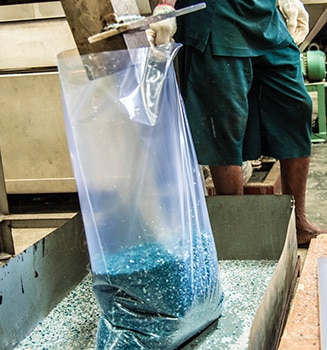
Once the plastic film is collected, it will go to Omnik, a convertor in Nigeria, where we will further develop PCR (post-consumer recycled) resin capabilities. With the new supply stream and Dow technology, the PCR quality will be improved so it can be utilized for detergent pouches for instance. Project ReflexNG is a win-win solution for all parties – for Dow, for the communities in Lagos and for the environment. When we can work with partners to incentivize recycling in places where formalized collection systems are not widely available, it allows us to emphasize the value of plastic waste as a new resource and engrain the fact that plastic can be used again and again as a part of a circular system while still creating social and environmental benefit.
Adwoa Coleman
Africa Sustainability & Advocacy Manager, Dow Packaging and Specialty Plastics
Country Manager, Ghana

